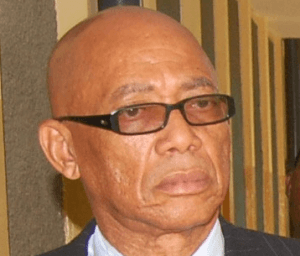Emile Short proposes coalition for “Conduct of Public Officers Bill”

Mr Justice Emile Francis Short, a former Commissioner of the Commission on Human Rights and Administrative Justice (CHRAJ), has advocated for the formation of a civil society coalition, on the “Conduct of Public Officers Bill.”
He said such a coalition would serve as a pressure group to ensure the speedy passage of the bill into law.
The bill, when passed into law, will set clear rules for public officials on how to conduct themselves in an array of instances, including when it is acceptable to receive gifts from people.
Mr Short made the call in Accra, at the launch of a research report and documentary, on the journey towards the passage of Ghana’s RTI Act (Act 989), as part of activities marking the International Day for Universal Access to Information (IDUAI) 2019.
The event was organised by the Commonwealth Human Rights Initiative (CHRI) in collaboration with the RTI coalition.
Each year, September 28th is observed globally by Human Rights Activists and Civil Society Organizations as the Right to Know Day.
The Day, recognised in 2015 by the United Nations Educational, Scientific and Cultural Organisation (UNESCO) as the IDUAI Day, a day set apart to promote the peoples’ right to information.
With regards to the RTI law, Mr Short said, “Passing the law doesn’t guarantee a successful implementation. We all know how governments are, whether it’s NPP (New Patriotic Party) or NDC (National Democratic Congress), they will all try to put bottlenecks on your way in trying to implement an important piece of legislation like this.”
“So, there is much work to be done and I hope that we will all put our heads together to make sure that implementation is very successful. Let’s ensure that we have effective and proper provisions in the bill before it is passed,” he added.
He urged the government to revive and resuscitate the constitutional amendment process; stating that “the Constitution we have is flawed in so many respects. And we need to address certain provisions.”
Mr Short, who cited the provision that the President should appoint the majority of ministers from Parliament, noted that the provision had rendered very weak parliamentary oversight of the executive.
He also suggested, the provision be looked at critically.
He further mentioned the excessive powers of appointments given to the President, which had really made the nation’s politics so decisive.
He said both the NDC and the NPP might not want to change it because they all want to exercise control.
“The opposition is in the wings waiting so they could also enjoy when it’s their turn to takeover. So the responsibility lies with Civil Society to make sure that some of these changes are made,” he stated.
Madam Mina Mensah, Regional Coordinator, Africa Office – CHRI, said every year, the RTI Coalition joins the global community to commemorate the IDUAI Day with various activities.
Mr Inusah Fuseini, Member of Parliament for Tamale Central, said the RTI Act would go a long way to strengthen democracy and promote good governance in the country, adding that it would empower the citizenry to hold government accountable.
The 52-page research report sought to cover certain topics on the over 27 years of advocacy until the passage of the RTI bill into law, including what triggered writing of the 1999 draft and the earlier advocacy preceding the 1999 bill.
It also tackled happenings beyond the first RTI bill, the evolution of RTI law, the legislative footprint of the RTI bill from 2010 to 2019 and also identified the role of the RTI Coalition since its inception in 2003.
The report analyzed the role of Civil Society’s legislative advocacy during the period the bill was in parliament, identifying strategies and activities put in place to determine the ones that helped and those that did not.
Source: GNA
